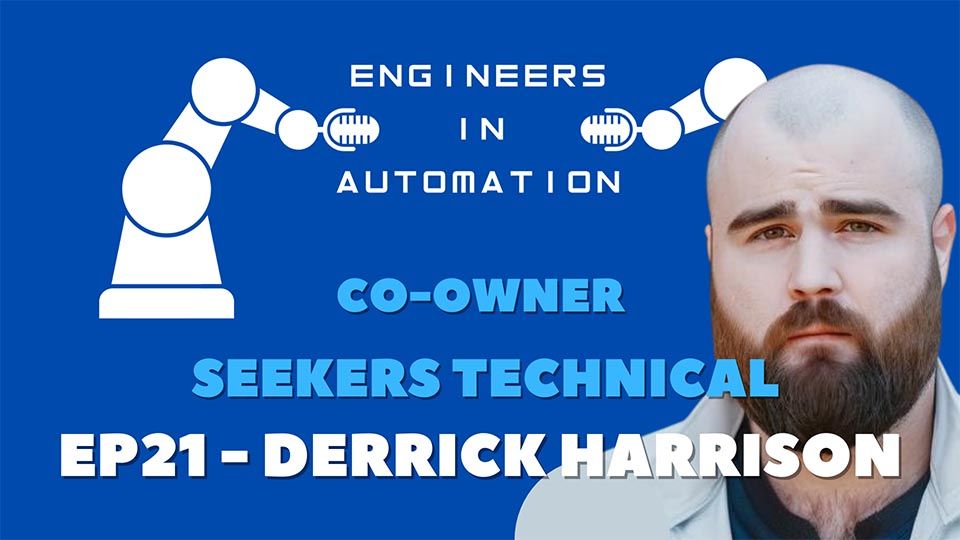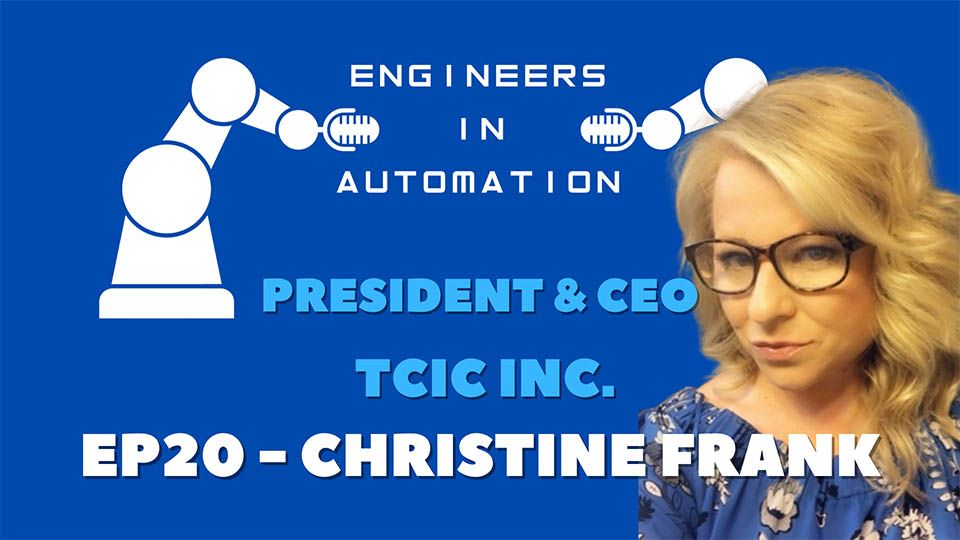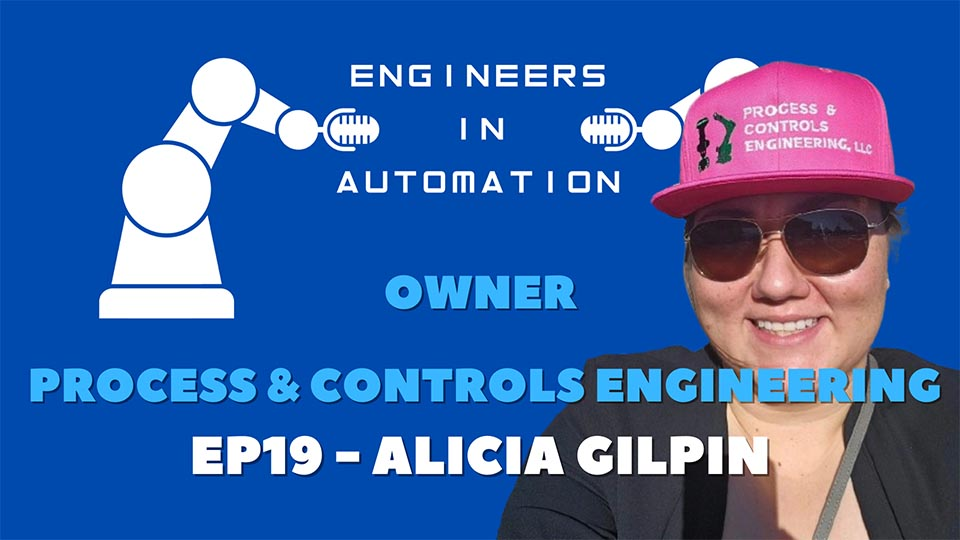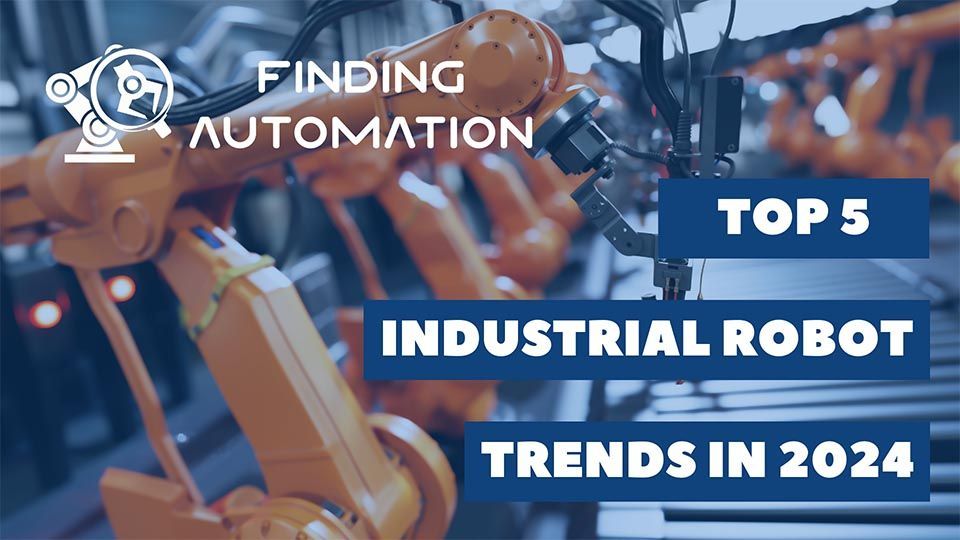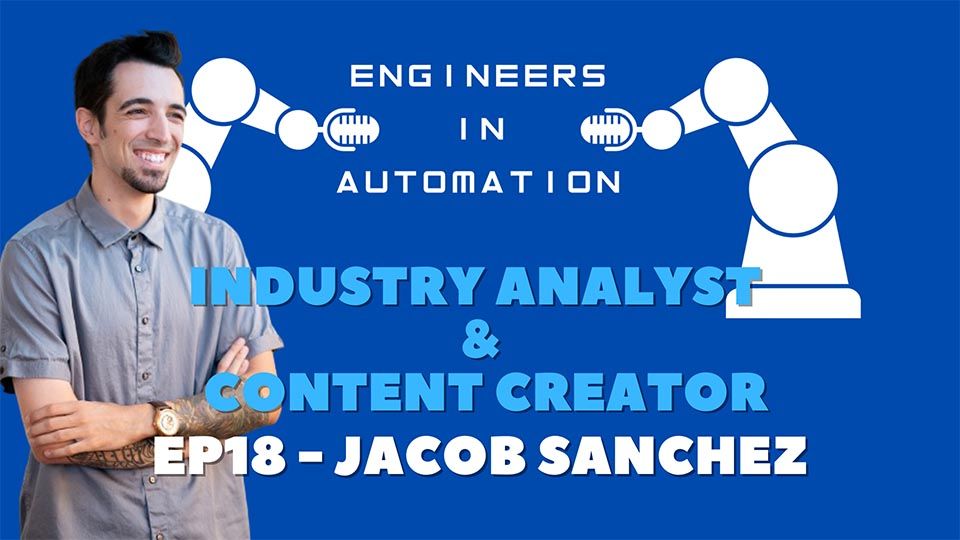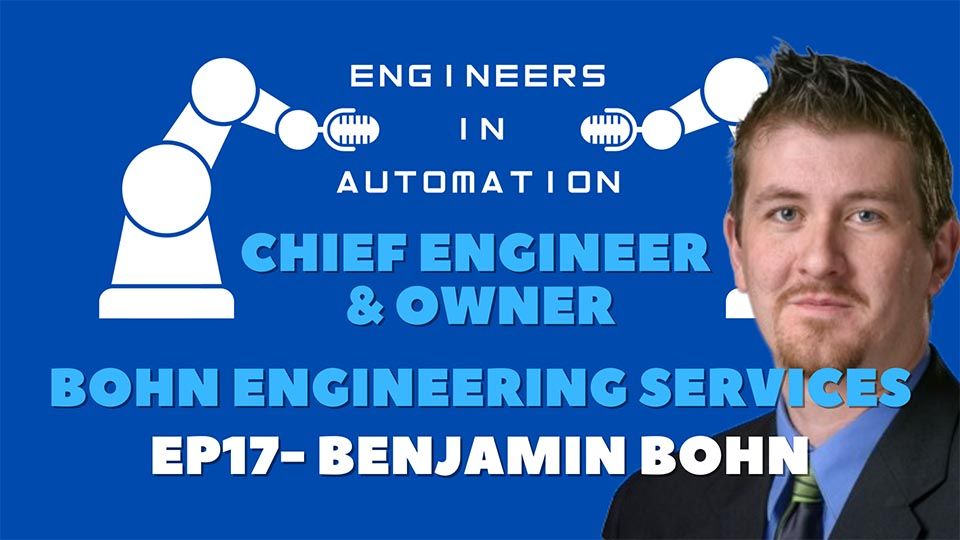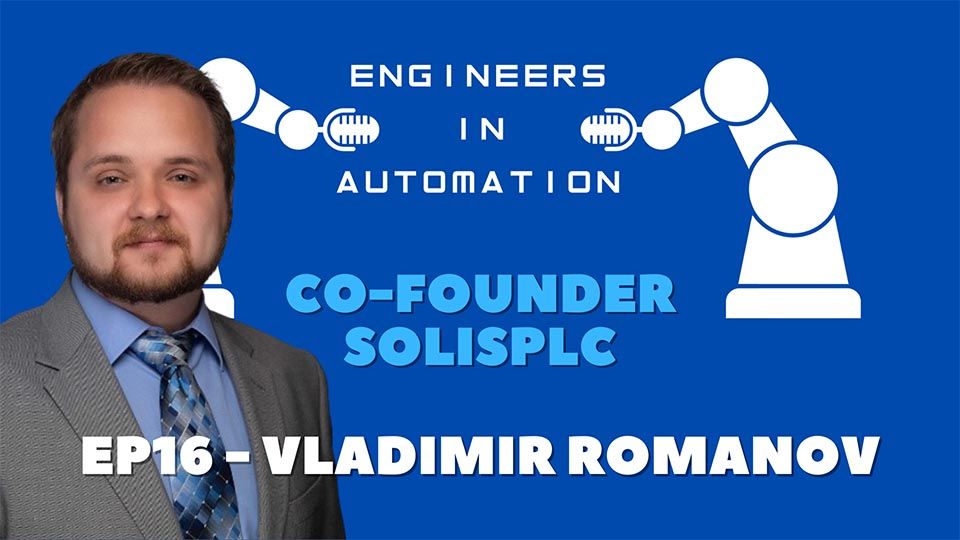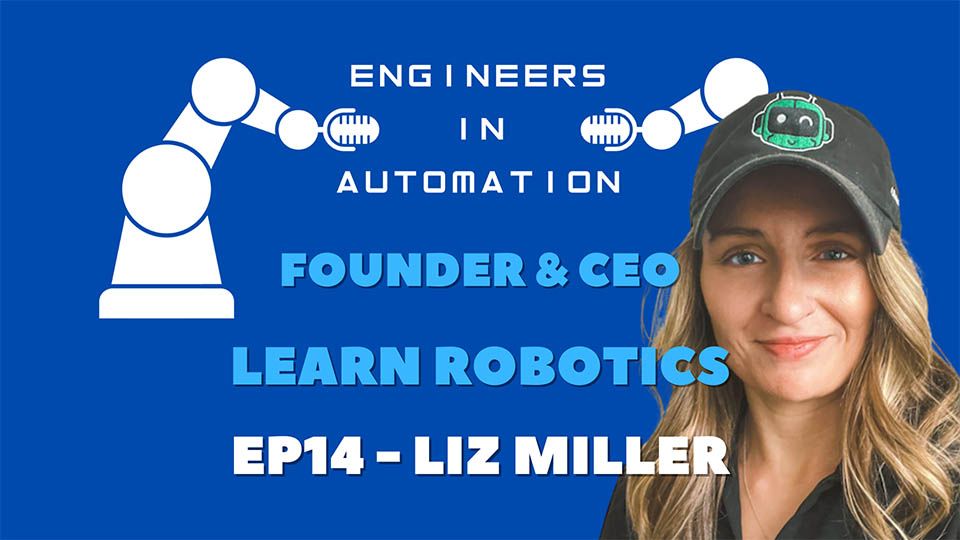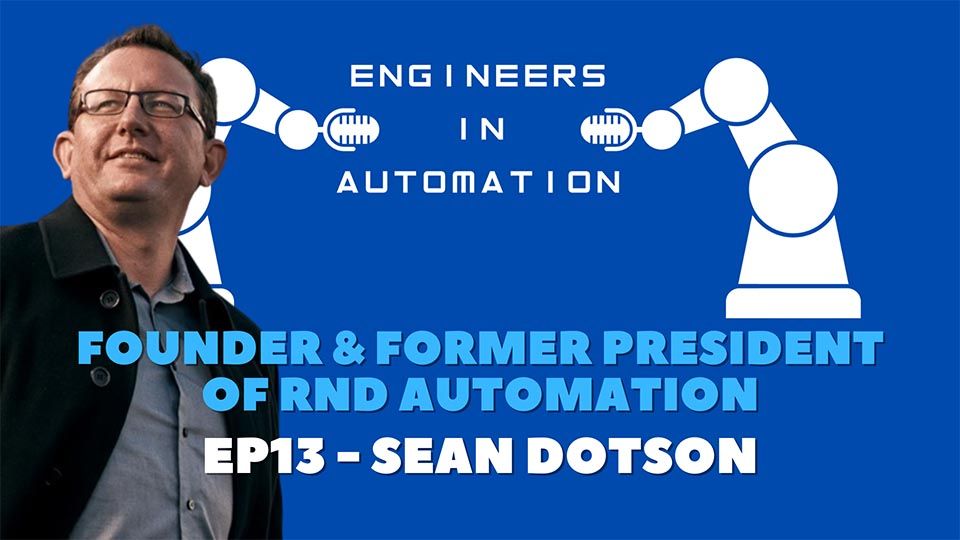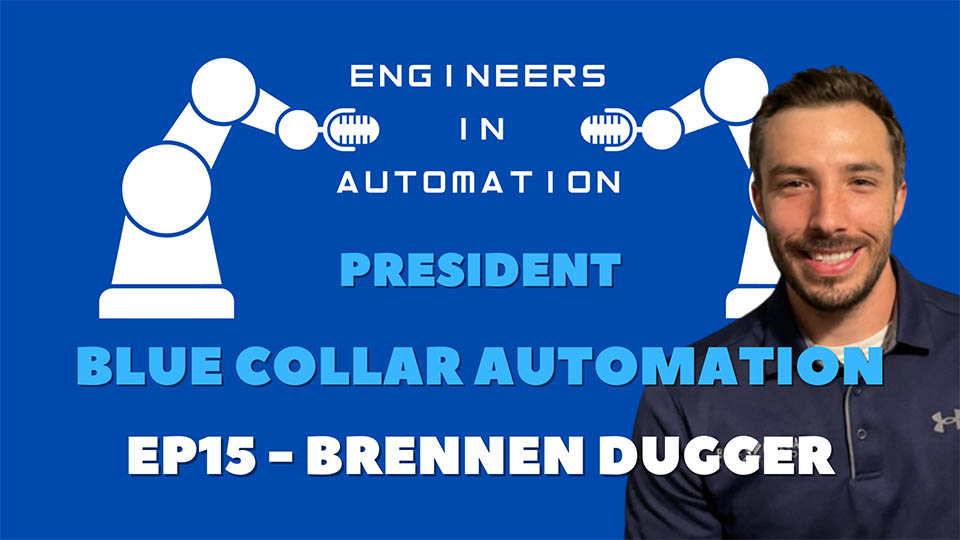Keegan Dillon – Host (KD):
Hi my name is Keegan and I am the founder of JOINER Services and this is Engineers in Automation. On today’s episode, we are going to be talking with Raul Verdusco of Verdusco Consulting. We are going to talk a little bit about his automation and engineering journey, so let’s go ahead and jump into the show!
KD:
All right, and welcome, everybody here. I'm with Raul Verdasco from Verdasco consulting. Raul, welcome! And thank you for being on the show with us today. Can you give everybody just a brief little background introduction about yourself and your company?
Raul Verdusco (RV):
Yeah. Again, my name is Raul Verdusco, I’m the founder of Verdusco Consulting.
I guess long story short, I started my consulting company because I had an issue with my builders at my house, I had mold all through my basement floor joist. And so, I was looking for a way to draw some extra money. And so, I just started my LLC, way back when in 2016.
About a couple of years ago, I decided to get serious about my business and start looking into opening up like, I guess you'd say, moving forward with my company, and on October 11, I took the leap and went on my own I've been growing since.
And I guess a little bit about what I do and where any type of work I do. Obviously, my business is consulting, but also do consulting and engineering support. And a lot of companies right now just looking for that engineering support, just because it is yeah, I say a lot of companies are just, that's what their need is. Consulting at this point in time, but that's their need.
KD:
What type of engineering support do you provide?
RV:
I can do project management, and also, software support, and engineering support. A lot of the companies right now, like, for example, I did some work for, Spin Tech, and Kellogg was most looking for help to bring a station up to speed. Another one was looking for, obviously, production support. And it's really where the needs are. Right now. I'm doing a company in the medical field.
Unfortunately, I have some NDAs that prevent me from truly talking about everything. End of the day, you know, I'm moving around different industries. And that's something that I really enjoy. That's something that I'm great, I guess you say wouldn't be able to do as a W2 employee.
KD:
Yeah, absolutely. And what other industries have you been working in then?
RV:
Really, the two big ones for me have been the medical and food and process industry.
KD:
And is there a lot of contract work in that area, you know, is there a lot of business right now in that area?
RV:
I think so I think, from what I can tell, every industry is looking to automate equipment. And, and so that brings a pool of engineers, and, you know, from hearing from, I guess you'd say, the younger generation, not everybody wants to get into controls they're more into IT stuff. Yeah, in the classroom, which is, which is pretty big, actually. But in essence, it drains away from the controls engineering the integration part. Yeah. And I'd say that's, that's where a lot of people like, oh, I didn't know it was at once you get it?
KD:
That's great, that's a great lead into my next question, too, is how did you actually get started in controls engineering, in electrical engineering in this in this industry?
RV:
You know, actually, that's my very first job at Horiba. They do custom design, custom work in engine testing, and transmission testing. And most of that is not automated. But one of the projects I had was for the Duramax diesel engine, and end up going out there and working on that project. And, the majority of that was automated, just because of the way they have the lines work.
They'll bring the engines over and get testing the test. And part of the job at that time was probably 10-15 years ago, was just refurbished, upgrade each, each test stand. And that's where I really learned automation and PLC work and it was, I guess, you say intense, fun at the same time a huge learning curve.
KD:
Yeah. Yeah. Great. Great. And then so about your business, then your consulting business, what makes that different than other consulting businesses that are out there? And that, you know, like, kind of touched on a little bit. Have you worked on any interesting projects now that you're, you're doing your own thing that you can share at least?
RV:
The medical field has been very interesting, at least from my point.
You know it's much different from automotive as in the checks and balances? There are a lot of verifications. And from that area as in the medical side, and people who have done that work understand that. How regulated is or how much emphasis is on verifying, and it makes sense. You know, you're putting medicine in the people. So, you got to make sure you're right.
There's no, oh, let's see what happens. It's all about, you got to make sure. It has to be 100%. So, and which is great, because some of the time, I'm pretty sure you've been through it yourself. You know, some of the stuff you like, let's verify before we run this.
KD:
Yeah, yeah. Good. And then so I guess, what would be some of the likes and dislikes that you've seen in the industry lately? Are there any trends that you're trying to get on that you'd like that you've seen?
RV:
Um, as of trends? I'm not sure. I mean, it's, how should I put this? I think the trend right now is, is everyone's trying to automate something. I mean.
KD:
And not everything can be automated yet.
RV:
Well, they're trying. Like, one thing I noticed is, there's a lot of cloud-based companies now that monitor hardware, for example, you know, Siemens is right now, you know, monitoring circuit breakers, like if you're trying to control a heating mechanism. And you always have to pen and close the contact, well that contact is going eventually go bad.
And so they tried to do predictive algorithms to determine, Okay, this thing's supposed to take, let's say, 500 hits, I might 480, or 450. They want software that sends a signal to the maintenance department to go change that out before it goes bad.
Which is honestly really cool. But at the same time, it's being able to integrate all that software into the hardware. And I'm to give a simple example. I mean, I heard of people using that type of software on doors. And how many times do you open and close that door? And okay, do we have to replace the components before the door falls off?
KD:
Yeah, sure. Yeah. Awesome. Well, how about let's talk about some of your, your more your background, you know, what are some of the mistakes that you've had on your journey? Now that you’ve been kind of out on your own here for a few years.
RV:
Mistakes, I don't make mistakes. You know, I don't really consider things mistakes. I really consider it a learning curve. As of I don't know about mistakes.
When I think of it, the first thing that pops into my head is, you know, there is no training manual on how to be an entrepreneur. There is no training manual on how to do this. I'm pretty sure when you started you were kind of learning as you go. And so that's how I when I hear that question, that's what I kind of think about is, is that really, the mistakes I made? It's just okay. You try to prepare yourself as much as you can. And you take a leap about and you learn from it.
You may not gain a lot of money from it, but you learn from it. But a perfect example I could come up with is one that Robert Kiyosaki his books. He talks about how he got his first apartment, a rental unit, and he made $25 a month.
And he really didn't do it just to make $25. He did it to learn. And that's the way I look at things. I'm, I may not make the greatest amount of money at it, but I got to learn my process.
KD:
Yeah, absolutely. Awesome. And with that, I think you touched on something great. Is learning all about learning. Are there certain places that you go to learn say if you're stuck with controls or electrical engineering issues or program management stuff? I know you dabble a little bit in everything. Where do you go then to learn and understand this new automation, you know, projects and things that maybe you weren't aware of or knew about in the past?
RV:
Well, um, you know, before I went on my own, I would just Google stuff. Now that I'm on my own, and, for me probably getting a little more in-depth than I should. For example, you know, before I went on my own, I read a lot of business books. And one thing they talk about is, finding yourself a good business coach, and finding yourself some good mentors. And so that's what I do is that I tried to find engineers that I worked with in the past and go to them for advice.
KD:
Yeah, that's great advice!
RV:
And so that's where I mean, obviously, Google still helps. But end the day. Having that network of people that you can call and ask these questions when you run into stuff, and especially if they've been in different industries, and that really helps. And just, you know, that's, to me more of where I use, where I should say, if I get stuck in something, is being able to network, being able to talk with people. And, you know, you got to, I guess you say, kind of build a little niche of business coaches.
KD:
Yeah, that's great. Great advice. I agree with that. Absolutely.
RV:
Yeah. And that way, you can read around the problems, and you know how to handle them. Sometimes it's not. Sometimes you'd be surprised where you get your answer from.
KD:
Yeah, yeah, absolutely. And then I know, on your LinkedIn profile, you've written quite a few articles there, do you want to talk about any of those that stick out to you the most?
RV:
Um, probably the one I felt was kind of fun as engineers become superheroes. Now, I'll be honest with you, I haven't. I wrote that a long time ago. So, I don't remember what I put into it. But it was just, I thought a fun one. Because there were so many different ways of going about it, like you could talk about, you know, I totally like DC, Marvel, or Iron Man.
And he talks about how industries are changing all the time. And, you know, it's, there were so many different ways of going about it and picking a topic. And that's what I kind of love about the articles, writing articles is that you can kind of go any direction you want.
If I basically tried to do it off of, you know, experience, a little bit of research, but mostly my experience and try to, I guess you say give the good advice, like, these are the things that I've seen, and you know, if it helps somebody great. If it doesn't, then oh, well, yeah.
KD:
And we'll put a link for those in this chat, as well. So, everyone can take a look at those for you. So yeah, of course, of course. So, and then, you know, one of the other things I always like to ask everybody is, you know, where do you get some of your inspiration from, you know, I know, especially in this business, not every day is great. There are a lot of hard and trying days as well. So where do you, you know, pull that strength from to get a little inspiration?
RV:
You know, how should put this, basically, my family, my wife's been very supportive through this process. And, you know, my family has been supportive as well. And I have good friends that, you know, have been pushing me to give this a try. And, you know, friends and family have been that, I mean, you got to have a good structure.
And also, you know, I have a small team, and they've been fantastic. I personally think that I wouldn't be in the situation I'm in unless it wasn't for them. So, basically, everybody I just talked about sums up all in one. You know, that's, that's pretty much how, you know, as you say, improving myself.
KD:
And then is there anything else you know, within the automation industry that you want to touch base on with your company and what you guys are doing?
RV:
Right now, we're, we're looking at updating their service page. That's something I'm in the process of doing, probably about one or two months away from having a good plan for that. And I don't want to talk about everything because there's some stuff that we’re thinking about doing.
And as you know, in business, you have to, I guess, put your everything together all eggs in the basket and then look at it what's realistic. What's realistic right now? And then this stuff we put on the backburner. This is stuff. We shouldn't do it. Yeah. And that's the toughest part about business is that what can you do and what can't you do?
KD:
And you're the one that has to make that decision, right? There's no one else.
RV:
Oh, yeah. Oh, too. Well, yeah. And you also have people that are there and can help you. And you know, this point of having a good team for business coaches, to be able to help guide you through that process.
Probably another, use just good example would be a book I read called the one thing they talked about probably, well, the best example they gave was Steve Jobs. When he started his company with Apple. I think he only had Max 10 projects or less. Yeah, throughout the beginning. And he will get offers every week about different types of projects. And he was like, no, this is it.
And that's something that, you know, especially starting off, you want to do everything. Because you feel you can enter in engineering, you have the skill sets to do it. But you need to go with your niche, you can't go outside of it. Like your foundation. And then when you're ready, you can expand. But this makes that your niche.
KD:
More great advice, man. I like that. That's good. Yeah, awesome. Well, anything else you'd like to share with us today?
RV:
Um, you know, I was going to ask you a question. What made you decide to do a podcast?
KD:
Um, you know, for me, I am very concerned with the future of automation, and the amount of the lack of workforce that we are going to see here in the future. And my thought behind this was to figure out how do we get more engagement interaction with people, especially, you know, like, how we got together and met, and then people through LinkedIn, and, you know, how, how do we reach our younger generation and get more people involved in, in the automation industry.
And that's, that's one of the reasons I'm doing this. And I'm hoping it engages people and people learn about the industry, and it just grows from there. And we can just see more young people getting involved in the future. And one of the things that's always hard is, you know, especially you know, in controls, there really is no university to go to, to just say, hey, here, go out. And you know, everything about controls, you know, they teach you a little bit here and there at each university, and everyone's different, but it's how you get them at that first step in the door. You know, sometimes there's a stroke of luck to get in.
So it's one of those where we can just put a bigger spotlight on the need for automation in the future. And that's one of the reasons why I'm doing this because I think there's going to be such a massive need.
RV:
Oh, that's, that's actually a good point. Actually, that's how should put this, thank you for doing it. Because I didn't really think about it. Honestly, last night, had a conversation with a couple of people, and we were talking about that, as in the younger generation is not really into the controls side of it. And, to be honest, they really want, like, I took electrical engineering. But there was nothing that really prepared me for it.
KD:
It's not just you, you know. A lot of the times that people you talk to that are in the industry, you know, they got the job through their friend, or they knew somebody or, you know, there's no real way to set especially jump into the controls side of the industry. It's very difficult.
RV:
It is. And I think, you know, personally, I used to say just me talking out loud again.
Now, my very first job was at Ariba. And I think that was probably the best job I've ever had from a learning perspective. Because I found throughout my career, a lot of people don't truly understand, how an oscilloscope works, in a manufacturing environment.
How ground really matters, you know, when doing analog signals, and then if you have something that trips all the time, nobody really understands, like the put different stuff is like, okay, and find out why it's tripping where it's coming from first, right, what engaging it? How high is it going?
KD:
And as a welding engineer, I understand the importance of grounding.
RV:
Yeah. Well, it's just, it's, I just find it kind of amazing that, not everybody gets that education. And I, I show up at this I would love to, I don't know, maybe create a university like that or some. Just so you have that education.
KD:
Training some sort of training, right?
RV:
Yeah, yeah. Now you got me thinking.
KD:
Awesome. Awesome. Well, that's what this is for. So, I'm glad you came on and shared your story with us and the viewers, and hope everyone, here enjoyed today's episode. And if you did, give us a like, comment, and share, and don't forget to subscribe I look forward to having you all join us next time on engineers and automation. Thanks!
